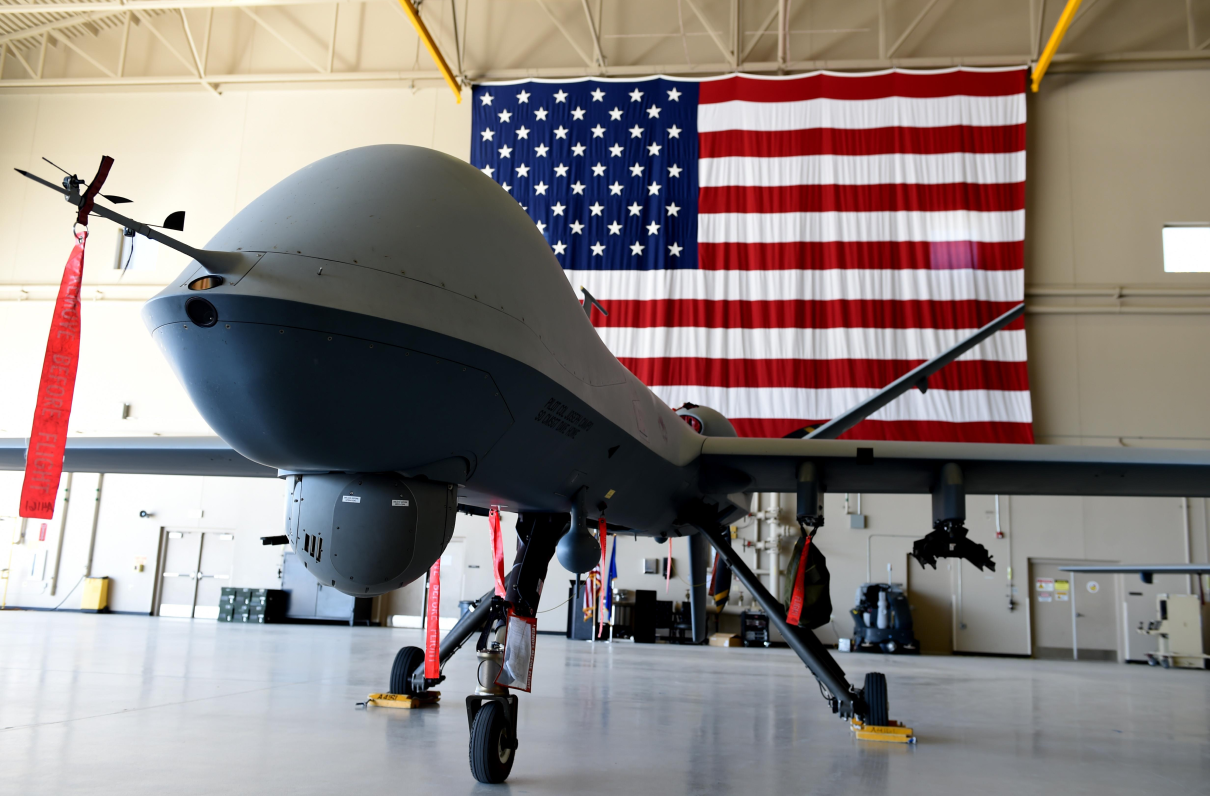This article by Riley Ceder originally appeared on Military Times, the nation's largest independent newsroom dedicated to covering the military and veteran community.
The 20th chairman of the Joint Chiefs of Staff believes growing artificial intelligence and unmanned technology could lead to robotic military forces in the future.
“Ten to fifteen years from now, my guess is a third, maybe 25% to a third of the U.S. military will be robotic,” said retired Army Gen. Mark Milley at an Axios event Thursday launching the publication’s Future of Defense newsletter.
He noted these robots could be commanded and controlled by AI systems.
Advancements in technology and changes in the nature of war will enable militaries worldwide to make smarter and faster decisions, Milley said.
[RELATED: How AI Is Helping Scammers, and How You and Your Family Can Stay Safe Online]
He was careful to clarify the difference between the nature and character of war. The former, he said, involves human activity and acts of politics.
“One side is trying to impose its political will on the other by the use of organized violence,” said Milley.
He noted this aspect of war rarely changes.
The character of war, however, involves tactics, technologies, weapons systems and leader training. Milley said that while these dynamics often change, the world is currently experiencing the biggest fundamental shift in human history with the rise of AI and robotics.
[RELATED: More Recommended Reads From MOAA]
He cited the transition from the Civil War musket to the rifle as a prime example of a transformation that forever altered the landscape of armed conflict.
The country that implements these technologies the quickest for military use will gain the most decisive advantages over its adversaries, Milley said.
For America to maintain its supremacy as the world’s most lethal military, Milley believes it must not only adapt quickly but also in ways that might cause seismic shifts in operations.
Milley said current U.S. policy stipulates a human must always be involved and in charge when it comes to military robots and their use of lethal munitions. He explained the current thinking is that humans possess an ethical framework for decision-making that should be prioritized above all else.
Technology doesn’t have morality, he said.
But he didn’t rule out a reality where that might change.
“You can imagine a future from a technical standpoint [where] a machine enabled by AI, a robot enabled by AI, could make its own decisions,” said Milley. “Is that something the world wants?”
Other articles by Military Times:
Afghanistan War Commission wants veteran stories and questions
ASVAB tutor scams target military prospects, Air Force recruiters say
USS Eisenhower back in Norfolk following historic, extended deployment
Support The MOAA Foundation
Donate to help address emerging needs among currently serving and former uniformed servicemembers, retirees, and their families.
